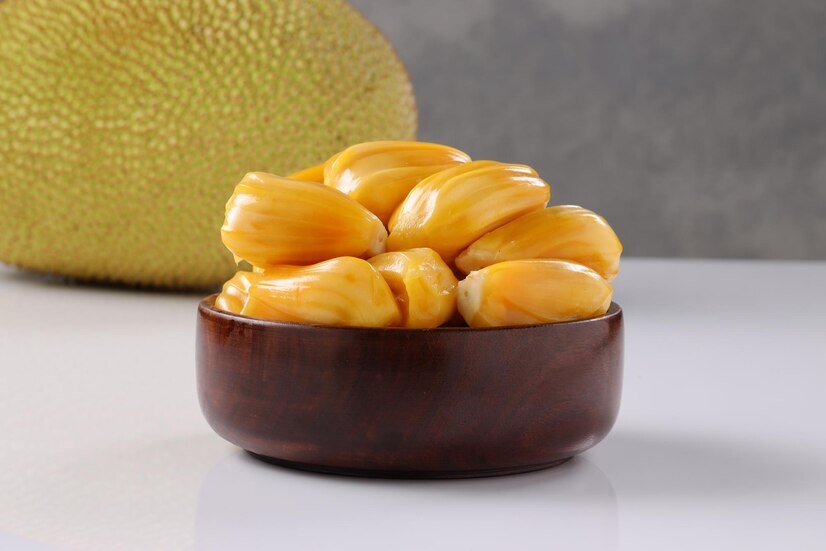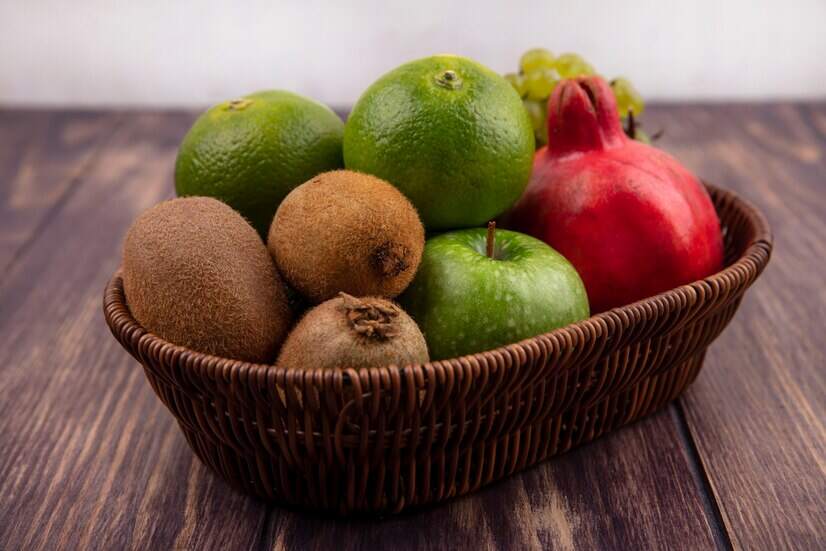When it comes to healthy eating and weight loss, fruits are often praised for their vitamins, minerals, and fiber. But did you know that some fruits also contain protein? While they may not be as protein-packed as meat, dairy, or legumes, high-protein fruits can still play a role in a balanced diet, helping to boost satiety, preserve muscle mass, and support metabolism.
Protein is essential for weight loss because it helps you stay full longer, reducing cravings and unnecessary snacking. If you’re looking to add more protein-rich foods to your diet while enjoying the natural sweetness of fruit, you’ll be happy to know that certain options contain more protein than others.
So, what are the best high-protein fruits for weight loss? In this article, we’ll explore the top protein-rich fruits, how they benefit weight management, and the best ways to include them in your daily meals.
Why Is Protein Important for Weight Loss?
Protein is a crucial nutrient for weight loss and overall health. It plays a key role in boosting metabolism, preserving muscle mass, and keeping you full for longer. When you consume protein, your body works harder to digest and process it, leading to a higher calorie burn—a process known as the thermic effect of food (TEF). Additionally, protein helps reduce cravings by stabilizing blood sugar levels, making it easier to maintain a calorie deficit.
While fruits are not as protein-dense as meat, dairy, or legumes, they still contribute to your overall intake. For comparison:
- Chicken (3 oz): ~26g protein
- Greek yogurt (1 cup): ~20g protein
- Lentils (1 cup, cooked): ~18g protein
- Guava (1 cup): ~4g protein
Even though high-protein fruits contain less protein than animal or plant-based sources, they offer fiber, antioxidants, and essential vitamins that support weight loss.
To maximize protein benefits for weight loss, try pairing high-protein fruits with other protein sources. For example:
✅ Greek yogurt + berries → A metabolism-boosting breakfast
✅ Almond butter + banana → A muscle-repairing post-workout snack
✅ Cottage cheese + peaches → A protein-packed, satisfying dessert
By incorporating protein-rich fruits into your diet along with other high-protein foods, you can enhance fat loss, muscle retention, and energy levels—all essential for a successful weight loss journey.
Top 10 High-Protein Fruits for Weight Loss
If you’re looking to boost your protein intake while losing weight, incorporating high-protein fruits into your diet can help. While fruits aren’t as protein-rich as meat or legumes, they still offer fiber, vitamins, and antioxidants that support metabolism and fat loss. Here are the best high-protein fruits to help you stay full, build muscle, and shed pounds.
1. Guava (4.2g protein per cup)
Guava is one of the highest-protein fruits, making it an excellent choice for weight loss. It’s also packed with fiber and vitamin C, which supports immunity and digestion. The fiber in guava helps control hunger and promote gut health, making it a great snack for weight management. Eat it raw, blend it into smoothies, or add it to fruit salads for a refreshing boost.
2. Avocado (3g protein per cup)
Avocados are unique because they contain protein, healthy fats, and fiber. Unlike most fruits, they are low in carbs, making them ideal for low-carb and keto diets. The combination of protein and monounsaturated fats helps keep you full longer, reducing cravings and overeating. Enjoy avocados in salads, on whole-grain toast, or blended into smoothies for a creamy texture.
3. Blackberries (2g protein per cup)
Blackberries are not only high in antioxidants but also provide a decent amount of protein and fiber. They help regulate blood sugar levels, making them a great choice for weight loss. Their low calorie and high water content make them perfect for snacking. Add them to yogurt, oatmeal, or smoothies for an easy protein boost.
4. Jackfruit (2.8g protein per cup)

Jackfruit is a tropical fruit with a meaty texture, often used as a plant-based substitute for pulled pork. It provides a good amount of protein, fiber, and vitamins, making it an excellent option for weight loss. Jackfruit is low in fat and calories, making it ideal for those looking to cut calories without sacrificing satiety. Enjoy it raw or cooked in savory dishes.
5. Kiwi (2.1g protein per cup)
Kiwi is a low-calorie fruit packed with protein, fiber, and vitamin K. Its high fiber content promotes digestion and fullness, while its protein helps maintain muscle mass during weight loss. Kiwi is also a natural source of digestive enzymes, which aid in nutrient absorption. Eat it on its own or mix it with other high-protein fruits for a nutrient-dense snack.
6. Apricots (2g protein per cup)
Apricots are a great source of protein, fiber, and vitamin A. Their low-calorie and high-fiber profile makes them a perfect addition to a weight-loss diet. Dried apricots contain even more protein per serving, but be mindful of added sugars. Enjoy fresh apricots as a snack or add them to salads and oatmeal for extra nutrients.
7. Oranges (1.2g protein per cup)
Oranges may not be the highest in protein, but they offer a mix of protein, fiber, and immune-boosting vitamin C. Their high water content helps keep you hydrated and full, reducing hunger cravings. Oranges are a great snack on their own, or you can pair them with nuts or Greek yogurt for a balanced, protein-packed meal.
8. Bananas (1.3g protein per cup)
Bananas are known for their potassium content, which helps prevent muscle cramps and aids in muscle recovery after workouts. They also provide a moderate amount of protein and fiber, helping keep you full and energized. Combine bananas with nut butter, chia seeds, or protein powder for a high-protein weight-loss snack.
9. Peaches (1.4g protein per cup)
Peaches are a juicy and refreshing fruit that contain a small but beneficial amount of protein and fiber. Their natural sweetness makes them a great substitute for unhealthy desserts. Peaches also support digestion and hydration, helping with weight management. Eat them fresh, in smoothies, or with cottage cheese for a protein boost.
10. Cherries (1.6g protein per cup)
Cherries are packed with protein, fiber, and antioxidants, making them a weight-loss-friendly fruit. They are also known to promote better sleep due to their natural melatonin content, which can support weight loss by improving recovery and metabolism. Enjoy cherries fresh, in smoothies, or as a topping for Greek yogurt.
Including these high-protein fruits in your diet can help you stay full, support metabolism, and maintain muscle during weight loss. While fruits alone may not provide enough protein for muscle building, pairing them with Greek yogurt, nuts, or protein shakes can help you meet your daily needs. Try incorporating these protein-rich fruits into your meals for a delicious and nutritious way to support your weight loss goals!
How to Add High-Protein Fruits to Your Diet
Incorporating high-protein fruits into your daily meals is an easy and delicious way to boost nutrition and support weight loss. While fruits alone may not provide enough protein for muscle building, pairing them with other protein-rich foods can create balanced, satisfying meals.
1. Start Your Day with Protein-Packed Breakfasts
- Add guava, blackberries, or kiwi to a bowl of Greek yogurt for a creamy, protein-rich start.
- Blend avocado, banana, and protein powder into a smoothie for an energy boost.
- Top oatmeal with cherries and almonds for extra protein and fiber.
2. Snack Smart with High-Protein Combinations
- Pair apricots or peaches with cottage cheese for a satisfying mid-day snack.
- Dip banana slices in almond butter for a quick protein boost.
- Munch on a handful of blackberries with nuts for a fiber-rich, filling snack.
3. Enhance Your Lunch and Dinner
- Toss jackfruit into salads or stir-fries as a meat alternative.
- Add oranges and avocado to a quinoa salad for a protein-rich, refreshing meal.
- Include kiwi and grilled chicken in wraps for a sweet and savory twist.
4. Optimize Post-Workout Recovery
- Make a smoothie with cherries, guava, and whey protein to aid muscle recovery.
- Enjoy peach and Greek yogurt parfait to replenish energy and protein.
FAQs:
1. Do fruits have enough protein to support weight loss?
Fruits alone don’t provide enough protein to meet daily needs, but they can still support weight loss when combined with other protein-rich foods. High-protein fruits like guava, blackberries, and avocado help boost satiety, control hunger, and provide essential nutrients. For best results, pair them with Greek yogurt, nuts, or cottage cheese to create balanced, protein-packed meals.
2. Which high-protein fruit is best for muscle building?
While fruits aren’t a primary protein source for muscle building, guava, jackfruit, and avocados contain higher protein levels than most. To build and maintain muscle, combine these fruits with lean proteins like chicken, fish, eggs, or protein shakes. Post-workout smoothies with guava, Greek yogurt, and whey protein are a great option for muscle recovery.
3. How do high-protein fruits compare to protein-rich vegetables?
Vegetables generally have more protein per calorie than fruits. For example, spinach (5g per cup) and broccoli (2.5g per cup) contain more protein than most fruits. However, fruits provide fiber, antioxidants, and natural sugars that support digestion and energy. A balanced diet should include both protein-rich fruits and vegetables to maximize nutrition.
4. Can I eat high-protein fruits on a low-carb diet?
Yes! Some high-protein fruits, like avocados and blackberries, are low in carbs and fit well into a low-carb or keto diet. However, bananas, jackfruit, and oranges are higher in natural sugars and may not be ideal for strict low-carb plans. Always check the net carb content before adding fruits to a low-carb meal plan.
5. What’s the best time to eat protein-rich fruits for weight loss?
The best time to eat high-protein fruits depends on your goals:
- Morning: Guava or kiwi with Greek yogurt boosts metabolism.
- Pre/Post-Workout: Bananas or cherries support muscle recovery.
- Evening Snack: Blackberries or peaches curb late-night cravings.
Timing matters, but the key is eating protein-rich fruits as part of a balanced diet.
6. Are dried fruits good for protein intake?
Dried fruits like dried apricots and prunes contain slightly more protein per serving than their fresh counterparts due to water loss. However, they are also higher in sugar and calories, which can hinder weight loss if eaten in excess. If you choose dried fruit, go for unsweetened varieties and pair them with nuts or yogurt for added protein.
7. Can I replace protein powder with high-protein fruits?
No, fruits don’t contain enough protein to replace protein powder for muscle building or recovery. While they provide essential vitamins and fiber, they lack the amino acids needed for optimal muscle repair and growth. Instead, combine fruits with protein powder in smoothies for a nutrient-dense, high-protein meal.
8. Which fruits have the least protein?
Fruits with the least protein include watermelon, grapes, apples, and strawberries (all under 1g per cup). While these fruits are low in protein, they still offer hydration, fiber, and essential nutrients that support overall health. If protein is your focus, opt for higher-protein fruits like guava, avocado, and blackberries.
Conclusion
High-protein fruits are a nutritious and delicious way to support weight loss while providing essential vitamins, fiber, and antioxidants. While they don’t contain as much protein as meat, dairy, or legumes, they can still help increase satiety, boost metabolism, and preserve muscle mass when paired with other protein sources.
Fruits like guava, avocado, blackberries, and jackfruit offer the highest protein content, making them great additions to a balanced diet. Whether blended into smoothies, paired with yogurt, or added to salads, these fruits can help enhance weight loss efforts while keeping meals satisfying and flavorful.
If you’re looking to lose weight without sacrificing taste or nutrition, start incorporating high-protein fruits into your daily routine. Small changes can make a big difference in achieving your health goals!
